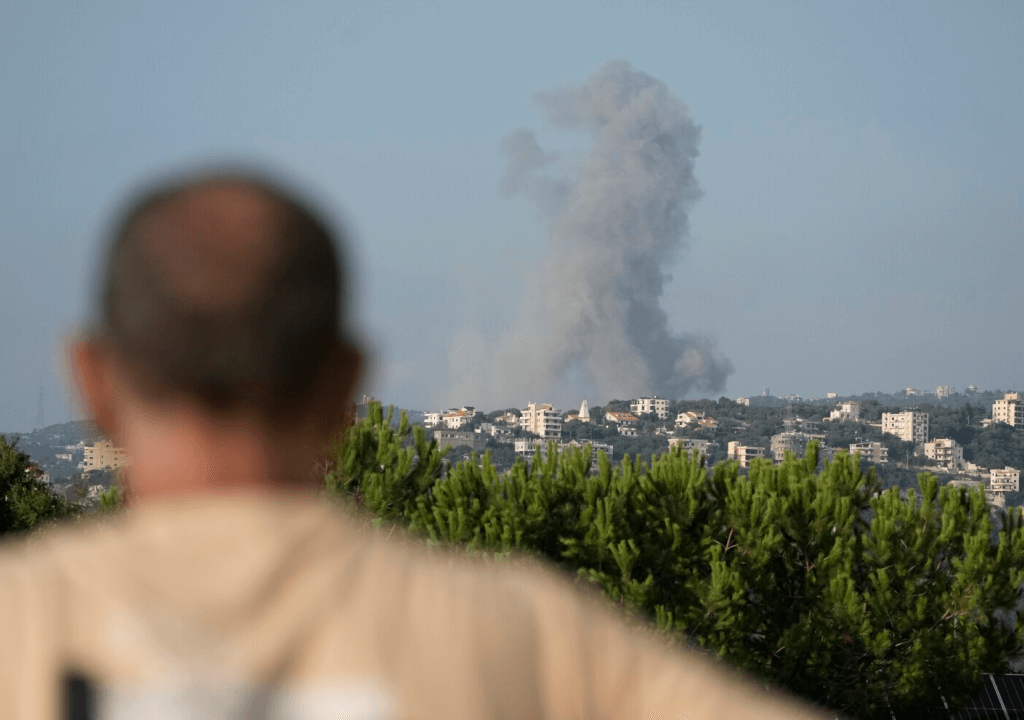After a series of missile exchanges and targeted strikes, it is clear that Israel is now at war with Hezbollah. Having nearly completed its campaign in Gaza, Israel is shifting its focus to the next target, following a well-executed plan. However, this conflict will not be as straightforward as Gaza. In Gaza, Israel primarily dealt with media coverage of civilian casualties – images of dead bodies, crying children, and grieving women that fueled international outrage from left-wing and liberal movements. Militarily, Hamas posed little threat. In contrast, Hezbollah operates from Lebanon, an independent country with strategic advantages, such as its mountainous terrain and easy connections to Iran and other regional militant groups. Nevertheless, Israel appears determined, and the war is already in motion. Lebanon, a nation already devastated by economic and political collapse, faces the grim possibility of becoming the next Gaza.
Lebanon’s health ministry reports that at least 500 people have been killed and 1,645 injured in a series of Israeli airstrikes on alleged Hezbollah targets, marking the highest daily death toll in the country since the end of its civil war in 1990. As Israel intensifies its offensive, thousands of residents are fleeing towns and villages in southern Lebanon. Prime Minister Benjamin Netanyahu described the military’s actions as shifting the security balance along Israel’s northern border, though his remarks seemed to downplay the severity of the situation. Israel Defense Forces Chief of Staff, Lt. Gen. Herzi Halevi, indicated that the military is preparing for the next phases in Lebanon, withholding further details. Israel appears determined to dismantle Hezbollah’s parallel governance in southern Lebanon, which it claims exists solely to target Israel and pursue a religious mandate to kill Jews.
The Israel Defense Forces (IDF) reported striking over 1,300 Hezbollah targets in the past day, marking its most extensive assault on the group since the Gaza war began last October, when Hezbollah started attacking in solidarity with Hamas. The success rate of Israel’s missile operations remains high, and more strikes are expected in the coming days, possibly before any ground invasion is considered. Earlier in the day, the IDF issued warnings to Lebanese residents in Beirut and other areas via phone calls, urging them to evacuate and avoid buildings suspected of housing Hezbollah weapons. Israeli media later clarified that these strikes were not indiscriminate missile barrages but were specifically targeting Hezbollah operatives, including Ali Karaki, the group’s third-ranking military commander. Reports suggest the operation was successful. Meanwhile, about 35 rockets were fired from Lebanon toward Israel’s Safed area, with some landing in open fields near the community of Ami’ad, according to the IDF.
Lebanon is now bracing for the possibility of a ground war, not by mobilizing its military but by focusing on protecting its citizens. A direct confrontation with Israel is beyond the country’s capabilities, and unlike Hezbollah, the Lebanese people do not view martyrdom in battle as a national or religious duty. Families fleeing southern Lebanon are publicly pleading for apartments or rooms to shelter their loved ones. Grassroots housing efforts have quickly emerged, with individuals coordinating calls for available spaces and hostels offering discounted rates to those displaced by the conflict. Meanwhile, international efforts to evacuate foreign nationals from Lebanon are underway, with countries like the U.S. issuing calls for peace, though such interventions often prove ineffective. Hezbollah, for its part, has vowed to continue its strikes in support of Palestinians and Hamas.
For over four decades, a shadowy and unyielding conflict has simmered between Israel and Hezbollah. Now, with steely determination, and despite the geographic and military risk factors, Israel appears intent on bringing this protracted struggle to a definitive conclusion. Israel’s resolute commitment to pursue this conflict may push Hezbollah into a corner, even though they appear stronger on paper. It is clear that, just as Gazan civilians have borne the brunt of hostilities, Lebanese civilians, too, will face the consequences. While Israel has been forged in the crucible of existential threats and built to withstand aggression, Lebanon, fractured and vulnerable, is far less prepared and could easily collapse. Should a ground war unfold, it would not only devastate Lebanon but also send ripples throughout the region. Such a conflict would signal to militants in Syria, Yemen, and Iran that they need to prepare for what lies ahead.








